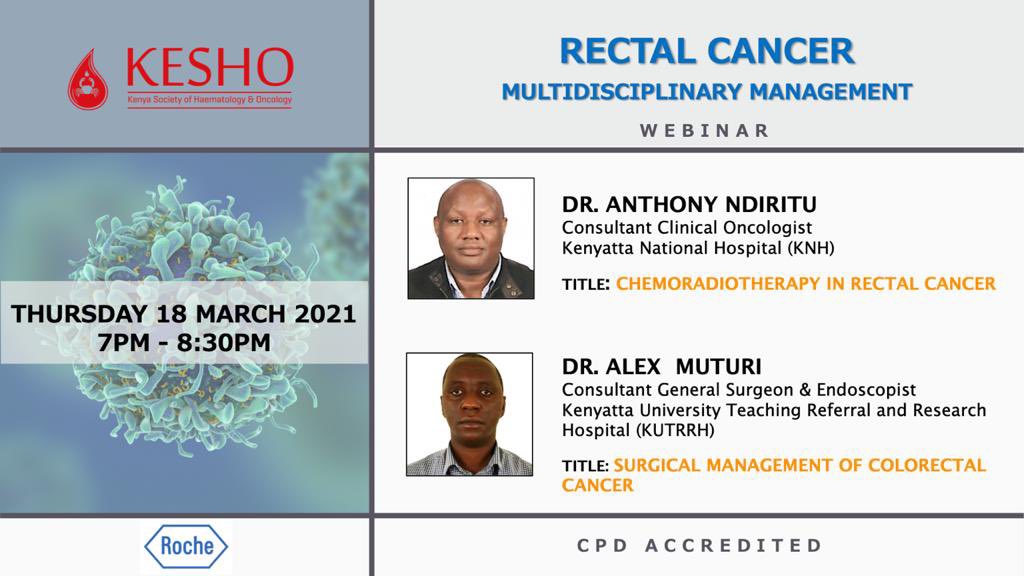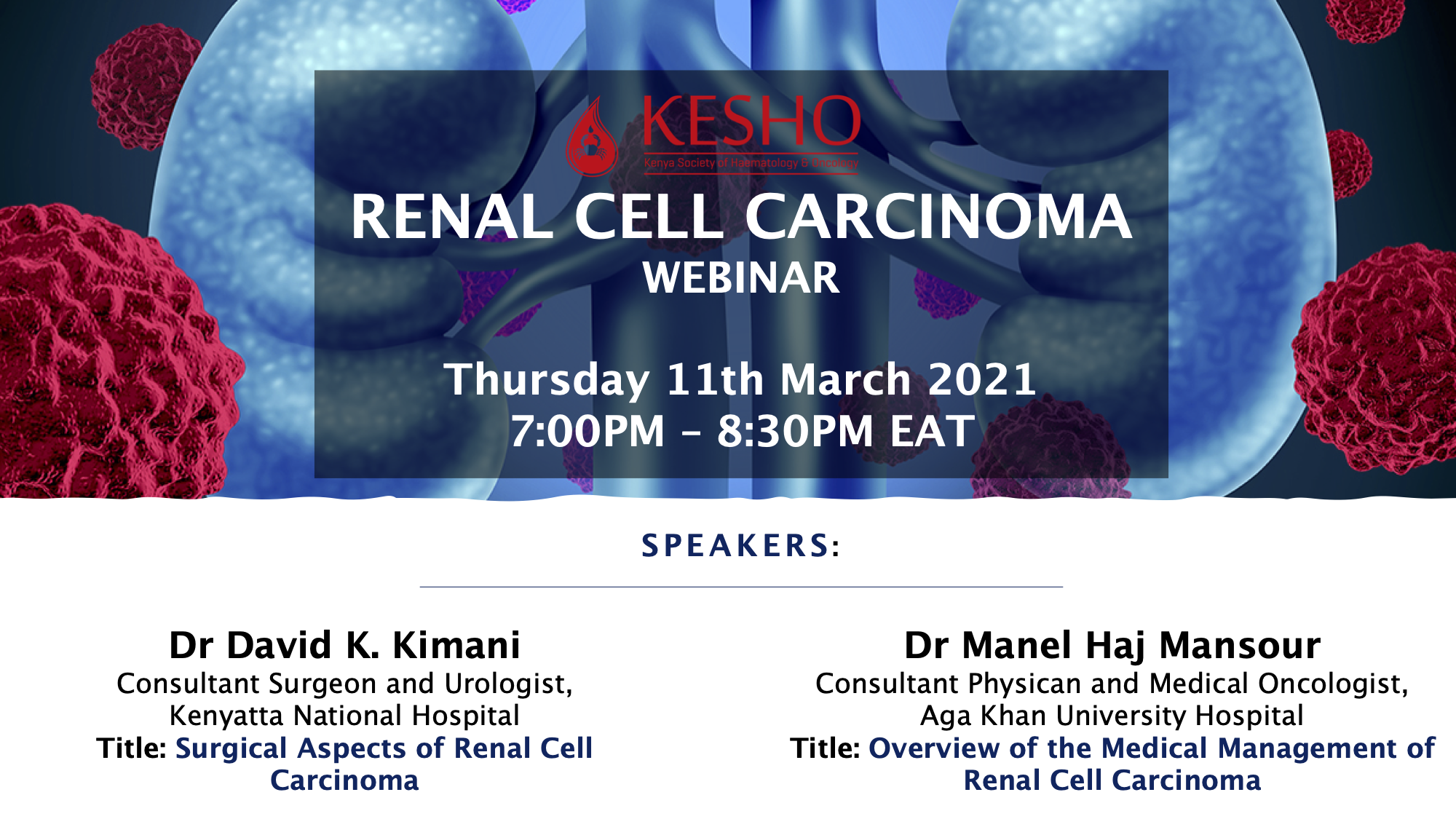
- This event has passed.
Rectal Cancer – Multidisciplinary Approach
Event Navigation

Moderator: Dr. Njoki Njiraini
Sponsor: Roche
Presenters:
- Dr. Anthony Ndiritu, Consultant Clinical Oncologist, Kenyatta National Hospital (KNH)
- Dr. Alex Muturi, Consultant General Surgeon & Endoscopist, Kenyatta University Teaching Referral and Research Hospital (KUTRRH)
Management of colorectal cancer requires staging and risk assessment by a multidisciplinary team (MDT) to help in decision making and to audit and review the outcomes. Nutrition therapists are part of the MDT as the patients need to be nutritionally optimal before chemoradiotherapy and surgery for them to tolerate the effects of the treatment. Colorectal cancer is preventable and treatable if detected early. Early screening using immunochemical testing would help to pick the lesions when they are precancerous, thus reducing cancer-related death by between 40-60%. A low index of suspicion of colorectal cancer among the caregivers is a major hindrance to timely diagnosis. For example, patients with bloody stool may be treated for hemorrhage or other infections, due to low suspicion of colorectal cancer. An accurate diagnosis would require a colonoscopy. Traditional, extensive lymph node dissection with limited use of neoadjuvant radio is falling out of favor, due to high functional genitourinary impairments and the need for experienced individuals to perform adequate dissection for outcomes. There is evidence that the dissection has similar recurrent rates as with neoadjuvant. Surgical site infections are a major challenge to surgery and require management. The cost of screening in Kenya is Ksh. 1000-2500. Management of colorectal cancer is by chemoradiation followed by surgery. The decision to take short-course radiotherapy (within a week) as opposed to the long course (5 to 6 weeks) should be guided by MDT. Patients with complete clinical response to chemoradiotherapy but who refuse to take surgery are at higher risk of local failure.
Webinar Recording

